The Rejected and the Redeemer
Title: The Rejected and the Redeemer
Artwork by: YMI X Zach Stuef (@stuefcreative)
Description: When we look at Jesus’ life, we see that he had many radical interactions with people who were marginalized—those who had fallen to the fringes of society because of sin, shame, judgment, or even physical defect and sickness.
But as we look at these encounters more closely, we’ll begin to see that Jesus isn’t only meeting with the marginalized. He has a message for us too.
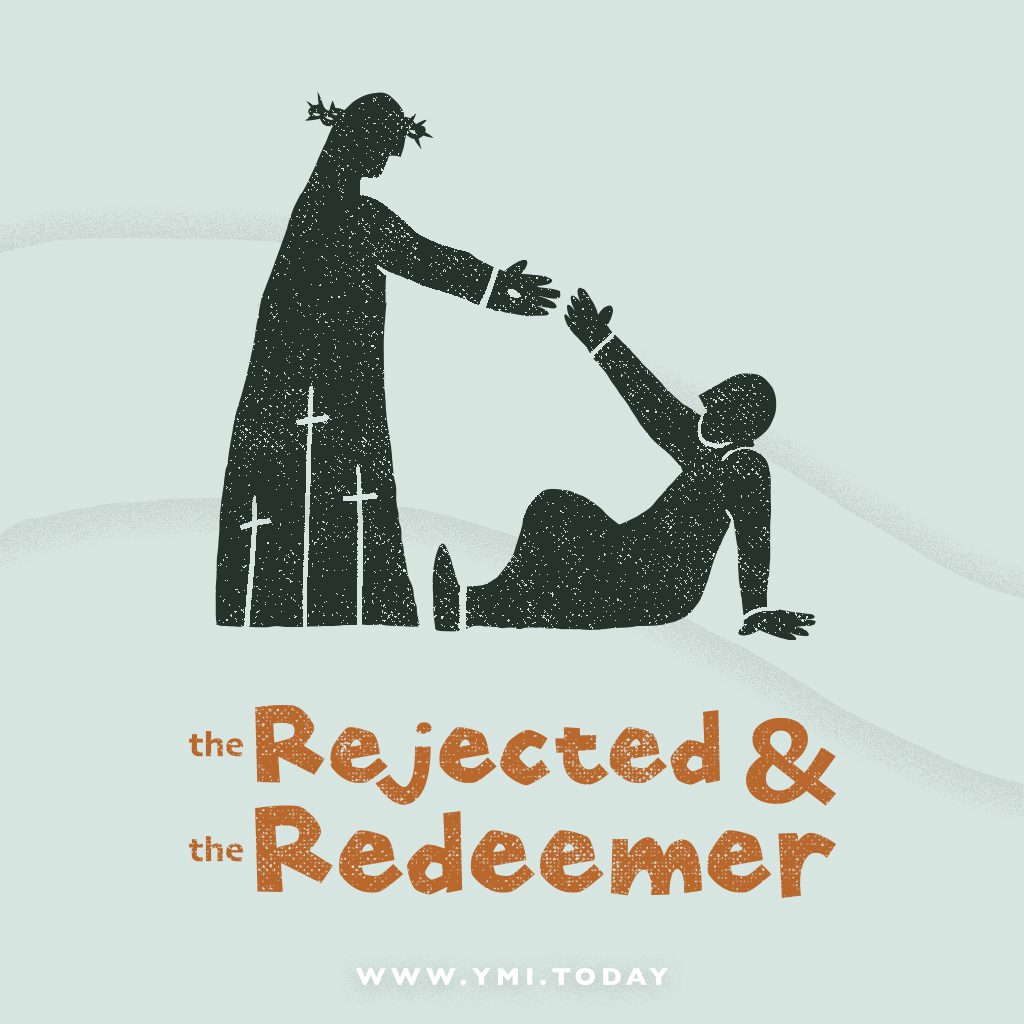
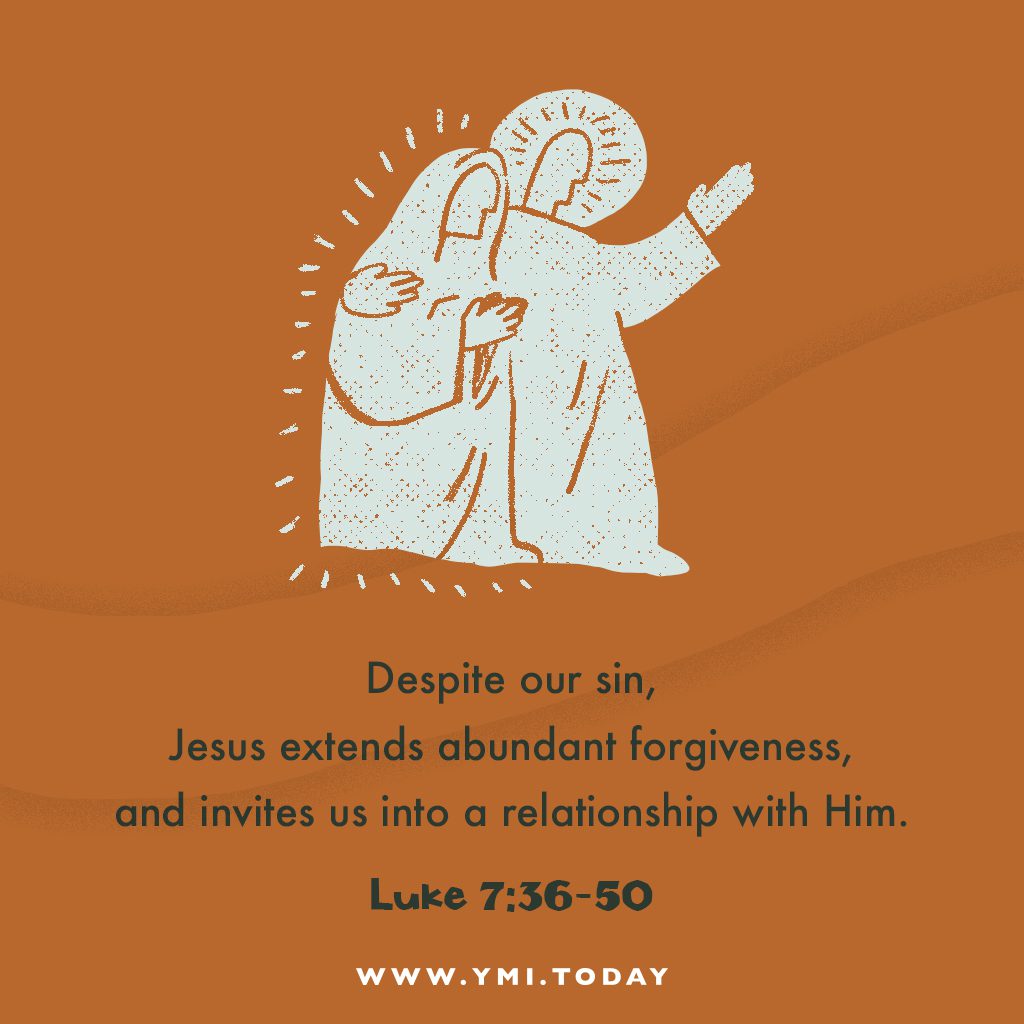
A sinful woman approached Jesus, washing His feet with her tears and perfumed oil. Simon the Pharisee looked on and criticized Jesus for associating with “this kind of woman” (v. 39).
But Jesus answers Simon’s criticism with a parable that defends the woman’s act as a display of great love for her Savior, who had forgiven her much.
Jesus’ last words to the woman were, “Your faith has saved you; go in peace.”
In this story, we witness the extent of Jesus’ abundant forgiveness, and how it enables sinners—just like us—to be in relationship with Him!

Onlookers scoffed when Jesus asked to stay at Zaccheus’ house because he was tax collector—a position that came with a reputation of betraying fellow Jews, exhortation, and dishonesty for the sake of personal financial gain.
But when Zaccheus gladly welcomed Jesus, instead of staying in his sinful ways, he immediately proclaimed that he would give half of his possessions to the poor, and would pay back four times what he had cheated out of anyone (v. 8).
As Zaccheus encountered Jesus’ forgiveness, it compelled him to reconcile with those he had wronged.
May our encounter with Jesus’ forgiveness inspire us to do the same!
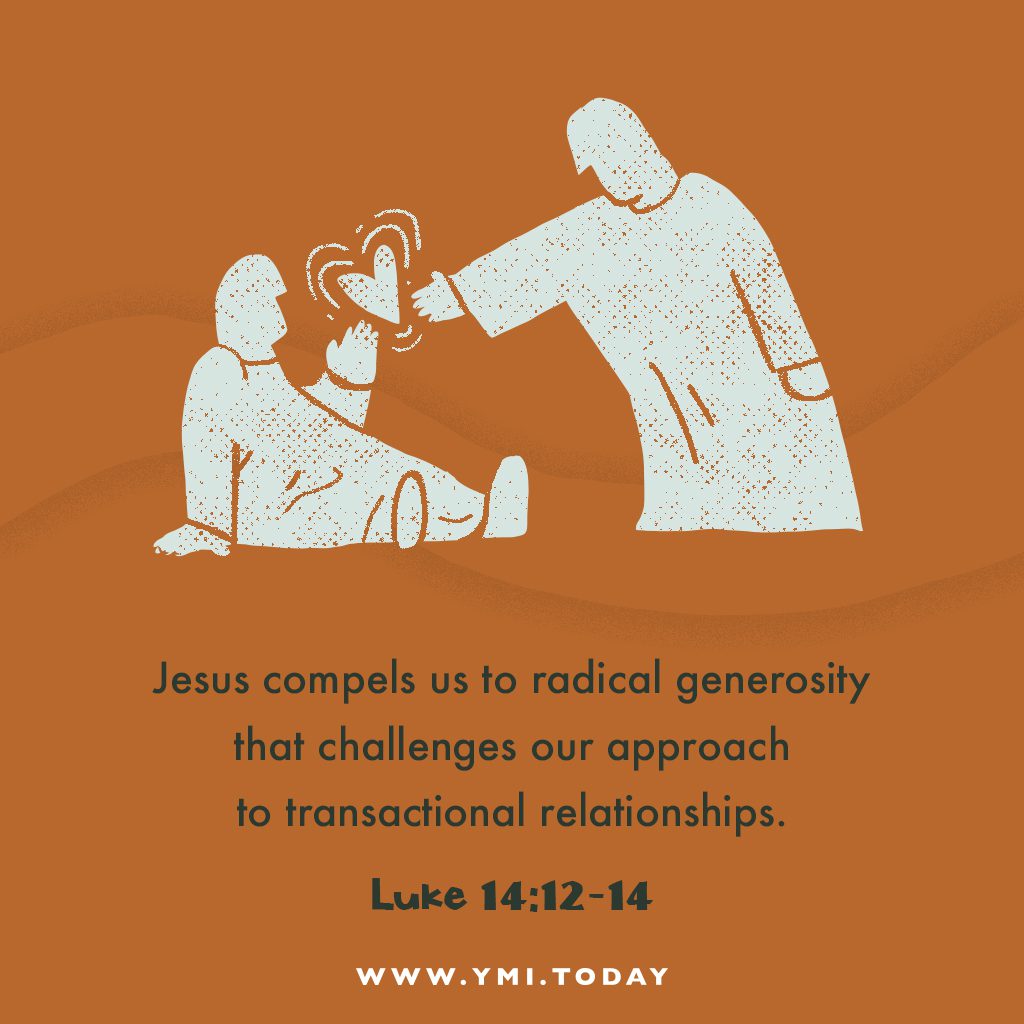
While eating at the house of a prominent leader and teacher, Jesus poses a challenge to his host.
He says that instead of inviting friends, family, or rich neighbors, when he throws a dinner, he should invite those who have no way to pay him back for his generosity—the poor, crippled, lame, and blind.
Here, Jesus reminds us to love and serve others. Even if they don’t return the same, we will be blessed (v. 14).
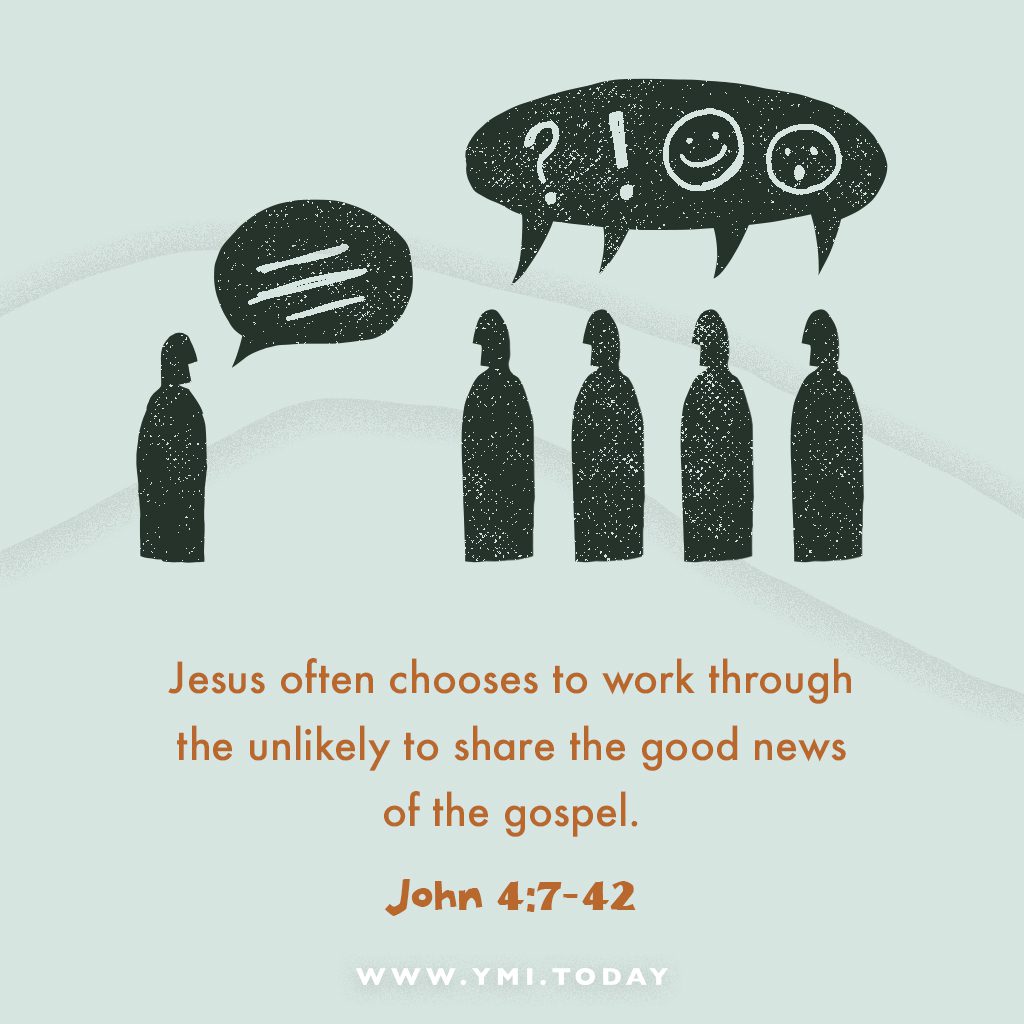
While waiting for His disciples at a well outside of a Samaritan town, Jesus makes a surprising choice by speaking to an immoral Samaritan woman—someone with at least three social strikes that leave her on the fringes.
And He reveals His identity as the long-awaited Messiah to her!
The woman rushes back to her town, and shares with others about her encounter with the Messiah (v. 29).
As a result of her report, many in the town believe in Jesus. As we read this story, we’re reminded that God often works through the unlikely to share the good news of Jesus!
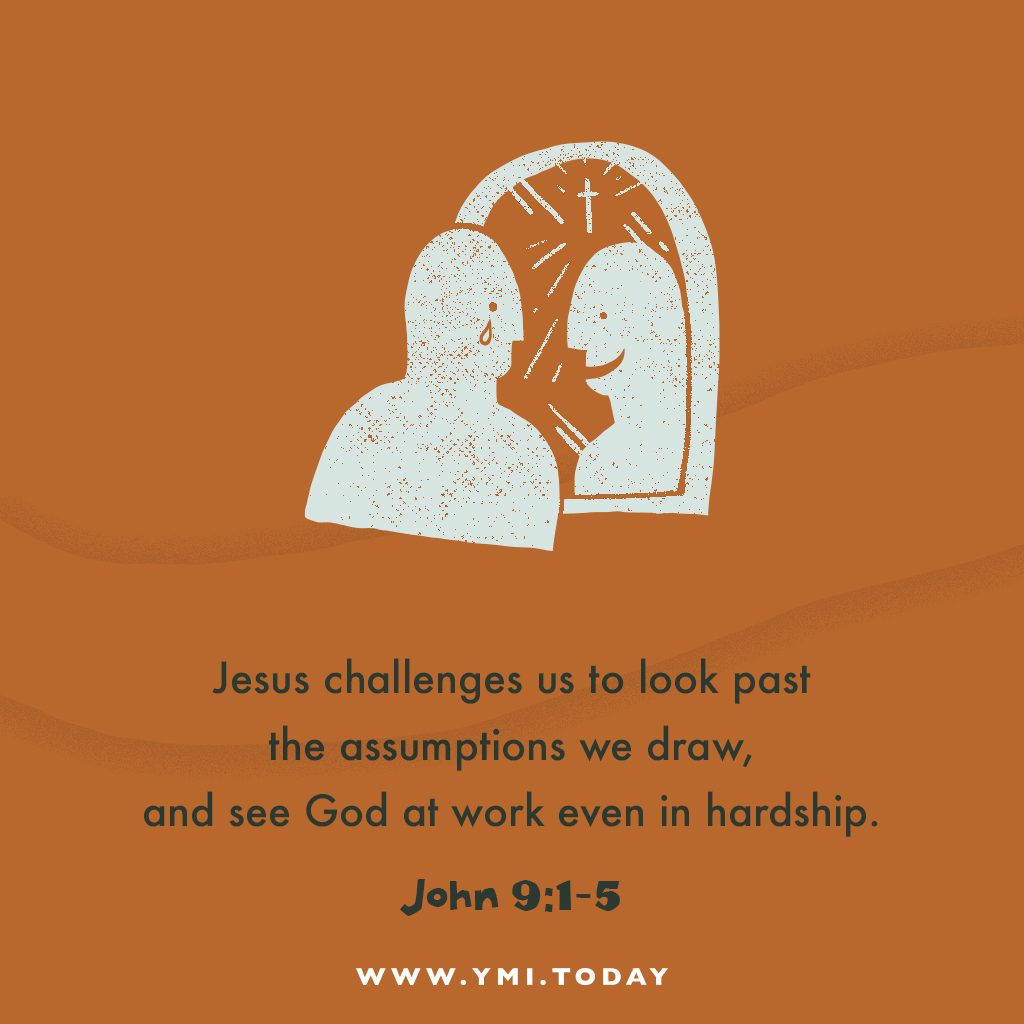
Jesus’ disciples see a man who is blind, and ask Jesus whether it was his parents’ or his sin that caused him to be blind.
Jesus surprised them by saying that the man wasn’t blind because of any sin he or his parents had committed, but he was blind so the “works of God might be displayed in him” (v. 3).
Although it’s common to look on hardship and try to identify its cause, it’s often simply due to the brokenness of this world.
But we’re encouraged to note that God isn’t limited by difficult circumstances—His works can be displayed even through hardship!










Leave a Reply
Want to join the discussion?Feel free to contribute!